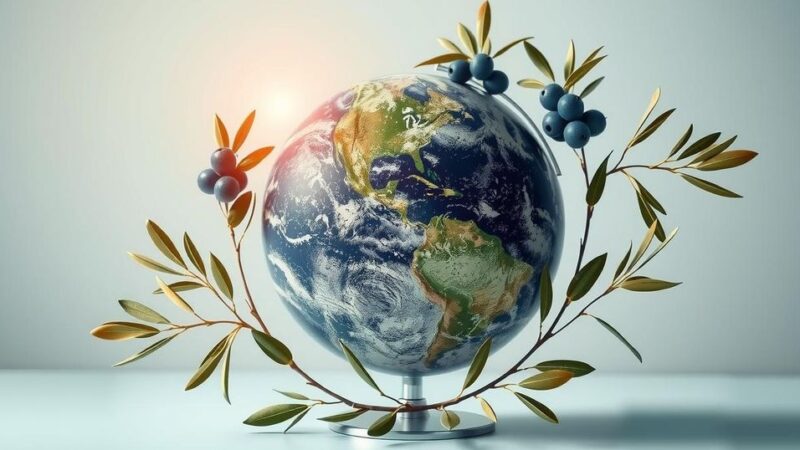IOC President Thomas Bach visited Johannesburg, South Africa, where he engaged with SASCOC, participated in discussions with athletes, and addressed key topics concerning the Olympic Games and athlete welfare. He praised SASCOC for its progress and attended a dinner with government officials, emphasizing the role of sports in unifying nations. President Bach also explored South African history by visiting Nelson Mandela’s home and foundation.
IOC President Thomas Bach recently concluded his visit to Johannesburg, South Africa, marking the second phase of his tour across the African continent. During his visit, he was warmly welcomed by key figures including Barry Hendricks, the President of the South African Sports Confederation and Olympic Committee (SASCOC), as well as IOC Honorary Member Sam Ramsamy and IOC Member Anant Singh. They were joined by Mustapha Berraf, who serves as both an IOC Member and the President of the Association of National Olympic Committees of Africa (ANOCA). At the headquarters of SASCOC, President Bach participated in the ‘Indaba’, a vital assembly of South African athletes. This gathering focused on valuable insights and lessons drawn from the upcoming Olympic Games in Paris in 2024. During a comprehensive Q&A session, he fielded inquiries on various significant topics, including athlete protection, gender equity, and the potential for future Olympic Games to be hosted in Africa. Additionally, he engaged with members of the SASCOC Board, as well as presidents and secretaries general from national federations, expressing his admiration for their notable achievements at the Paris 2024 Olympic Games. President Bach commended SASCOC’s recent accomplishments and noted his satisfaction with the organization being in “calm waters” while advancing dynamically in its operations. He particularly emphasized the importance of fostering connections with athletes and upholding the Olympic values. In the evening, the President attended a dinner alongside SASCOC Board members and South Africa’s Minister of Sports, Arts and Culture, Gayton McKenzie. The Minister extolled the unifying essence of sports within South Africa and lauded the Olympic Games in Paris for their potential to bring together nations globally. He also expressed South Africa’s commitment to ensuring the success of the Youth Olympic Games in Dakar in 2026, asserting, “South Africa stood ready to do everything in its power to make them a success for the continent of Africa.” The following morning, President Bach engaged in discussions with Minister McKenzie regarding the South African team’s achievements at the Paris 2024 Games and the commendable advancements made by SASCOC in recent times. Furthermore, President Bach held a telephonic conversation with the nation’s Head of State, President Cyril Ramaphosa, where they deliberated on the geopolitical implications affecting global sports. Furthermore, during his South African visit, President Bach had the opportunity to converse with Phumzile Mlambo-Ngcuka, Chair of the IOC’s Advisory Committee on Human Rights. His itinerary also included a visit to Soweto, where he toured the residence of Nelson Mandela and the Nelson Mandela Foundation, which preserves the archives of the esteemed former leader and Nobel Peace Prize laureate.
This article outlines the recent visit of IOC President Thomas Bach to South Africa, highlighting his interactions with key figures in South African sports and discussions regarding Olympic events, athlete welfare, and gender equality. It offers context regarding the significance of Olympic preparations and international relations in athletics, particularly the role that events like the Olympic Games and Youth Olympic Games play in promoting unity and development in Africa.
In conclusion, President Thomas Bach’s visit to South Africa underscores the International Olympic Committee’s commitment to engaging with national Olympic committees and addressing critical issues in the realm of sports. His discussions with South African officials and athletes reflect ongoing efforts to enhance athlete welfare and increase the continent’s visibility in future Olympic events. The strong emphasis on collaboration and progress at SASCOC illustrates a promising path for South African athletics in the global arena.
Original Source: olympics.com






